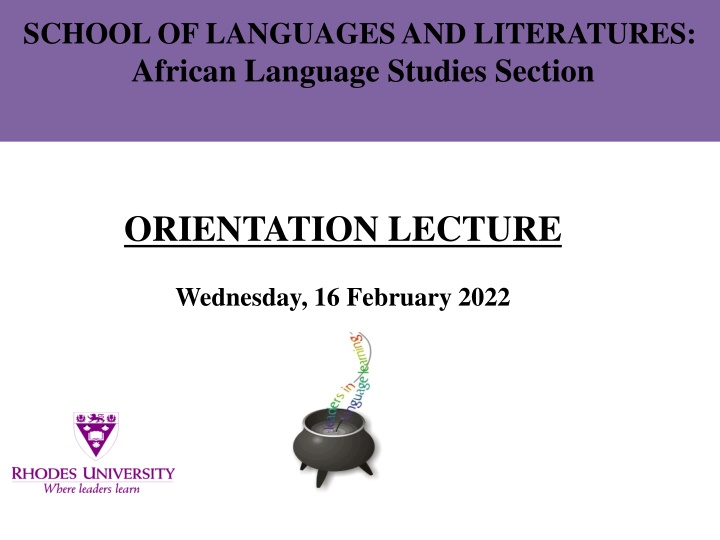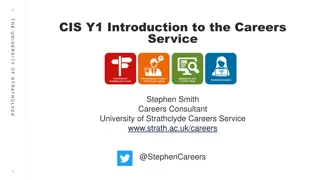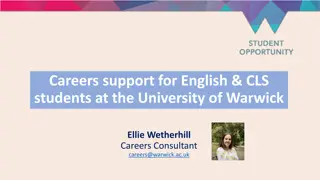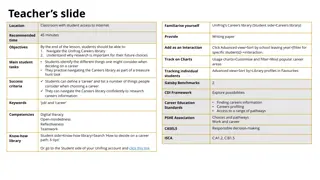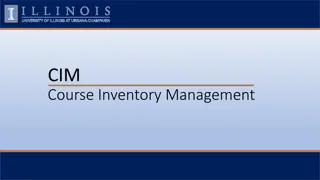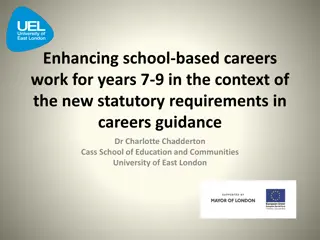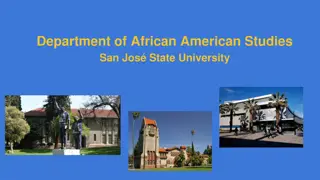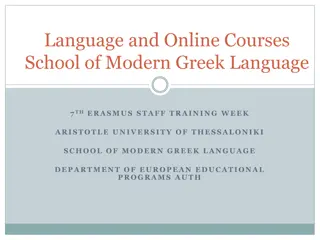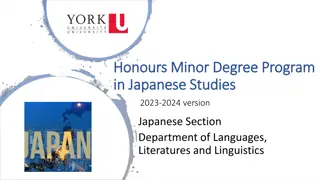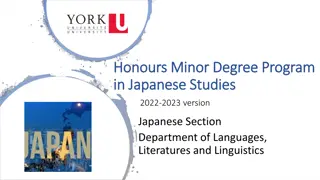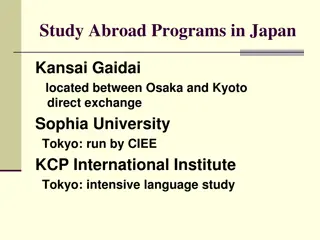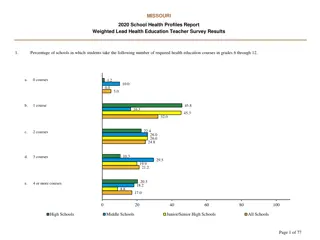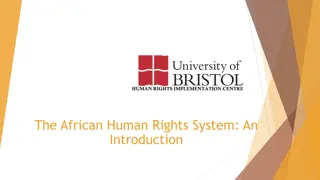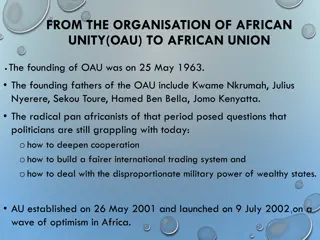African Language Studies at University: Objectives, Careers, and Courses
Learn about the African Language Studies Section in the School of Languages and Literatures, focusing on the objectives, potential careers, and courses offered. Explore the importance of studying isiXhosa at university, career opportunities in fields like journalism, education, and translation, and the diverse courses available, including IsiXhosa Language Acquisition. Understand the significance of promoting African languages and multilingualism in academic settings like Rhodes University.
Download Presentation

Please find below an Image/Link to download the presentation.
The content on the website is provided AS IS for your information and personal use only. It may not be sold, licensed, or shared on other websites without obtaining consent from the author.If you encounter any issues during the download, it is possible that the publisher has removed the file from their server.
You are allowed to download the files provided on this website for personal or commercial use, subject to the condition that they are used lawfully. All files are the property of their respective owners.
The content on the website is provided AS IS for your information and personal use only. It may not be sold, licensed, or shared on other websites without obtaining consent from the author.
E N D
Presentation Transcript
SCHOOL OF LANGUAGES AND LITERATURES: African Language Studies Section ORIENTATION LECTURE Wednesday, 16 February 2022
Introduction Why study isiXhosa at University? African Language Studies Section (Objectives and Careers) Courses on offer: Non-Mother Tongue Courses on offer: Mother Tongue Vocation Specific Courses
School of Languages and Literature (SoL) SoL comprises of the following Sections: Afrikaans and Netherlandic Studies African Language Studies Chinese Studies Classical Studies French Studies German Studies Modern Fiction Studies
Why study isiXhosa at University? Mandela s famous quote If you talk to a man in a language he understands, that goes to his head. If you talk to him in his language, that goes to his heart South African Constitution encourages the development and use of African languages (Constitution of the RSA, 1996) Eastern Cape has approximately 83% of its total population as speakers of isiXhosa (Stats SA, 2003) and other dominant languages are English and Afrikaans. Rhodes University student population of 7179 64% indicated English as their home language 15% have isiXhosa as home language 2% have Afrikaans as home language Others (19%) (Data Management Unit, RU, 2007) Rhodes University language Policy recognises and advances academic viability and status of isiXhosa, English and Afrikaans the 3 official languages of the Eastern Cape Province.
African Language Studies Section Objectives: To promote and advance scholarship in African languages To promote multilingualism through 1stand 2ndlanguage programmes, and To facilitate student access and retention, particularly of historically disadvantaged students. What careers can one follow after studying African Language Studies at Rhodes? Journalism (radio, television, newspapers, etc) Public relations officer Educator Advertising Speech technologist Translator Interpreter Author Language technologist Government (and other companies) policy formulator Editor (in newspaper, magazine, publishing company, etc)
Courses on Offer: IsiXhosa Language Acquisition This is a three-year major subject which may be studied for degree curricula in the Faculty of Humanities. IsiXhosa Language Acquisition 1 A full year course No prior knowledge required Matriculated with isiXhosa as a 2ndor 3rdlanguage (may be permitted to 2NMT) The emphasis is on practical proficiency in speaking and reading/writing IsiXhosa Language Acquisition 2 & 3 Introduction to the grammatical system of Xhosa. Introduction to the sociolinguistics of the Xhosa language. Introduction to language planning with special reference to Africa. Introduction to the various types of literature and study of selected Xhosa literary works. Abridged versions of Xhosa novels are used for better understanding of the Xhosa culture and use of language. In case of 3 NMT there are also research projects
Courses on Offer: African Language Studies The first year course is an introduction to isiXhosa as a language and the second year deals with the theoretical background of the language and isiXhosa 3 deals with the practical aspect in the form of projects. African Language Studies offers innovative and discipline related courses such: Translation, Language and technology, Literature, Language in context, Lexicography IsiNguni Language Comparative Studies, Language and media as well as Language and society.
Entry requirements L2 courses none L1 courses Mother tongue speaker of isiXhosa or any of the Nguni languages (isiSwati, isiZulu and isiNdebele) otherwise at the discretion of the Section Head If you are still not sure, speak with Mama Nosilela, the Head of Section
Vocation Specific Courses These courses provide students with knowledge and skills that they would use immediately in practical training, and as practitioners in the specific areas. The list of Vocation Specific Courses offered in the Section is as follows: IsiXhosa for Pharmacy, IsiXhosa for Journalism, Staff course Community engagement communication course
Umbulelo Siyabulela, nangamso. Dankie Thank you If you talk to a man in a language he understands, that goes to his head. If you talk to him in his language, that goes to his heart. http://t0.gstatic.com/images?q=tbn:ANd9GcT_oT0qdOxCCB0-Sh87_BDSjDs-T4gigI1WzLKr62p0pLyTw8RuEQ
Any QUESTIONS??? ------------------
